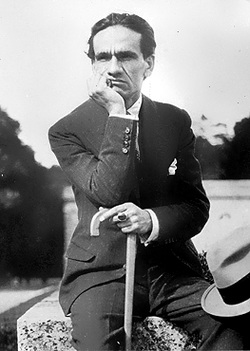 I'm rather proud of myself, for this weekend I read two pieces of literature electively that won't earn me credit for class. There was a time in my life that I enjoyed reading. And then I arrived to college. Ha ha? For those of you who know me and/or have looked at my resume, you'll know I have a background in Spanish and other romance languages. I remembered a piece that I read a few years ago and dug it up and out from the library's entrails. It is none other than César Vallejo's "Paco Yunque," a short story of fiction that implicitly denounces a classist, Peruvian society. See full text here. It tells the tale of a young, poor, country boy's first day at school. He's overwhelmed by the sounds, the rambunctious recesses and all the new energy that surrounds him. Despite being academically sharp, Paco finds it difficult to assert himself. After all, his classmate, Humberto Grieve, is also his master and lord and has long established a tradition of subjugating and punishing Paco, whether or not Humberto is provoked to do so. Paco Yunque's ally, Paco Fariña, encourages Paco Yunque to stand up for himself despite the consequences, but Paco Yunque knows too well what awaits him in the form of beatings, reprimands and abuse when he leaves the school grounds. So, as clichéd as it is, his predicament is accurately described as being "caught between a rock and a hard place." Best known as a poet who predicted his own demise, Vallejo's story was originally rejected for publication because it was too sad and likely because it was so demoralizing. "Paco Yunque" demonstrates that not all literature with children featured as protagonists is meant necessarily for children. The story is also a good tool for brushing up on one's Spanish. The text is accessible and not very grammatically demanding. Enjoy! If you like this story about a child exploring the power dynamics of a classroom, explore Mexican-American writer Sandra Cisneros' "Once" as well. Another good read about children and learning outside of the classroom is The Lesson by Toni Cade Bambara.
1 Comment
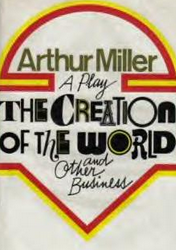 A new friend of mine, Travis Faust, gifted me this play, The Creation of the World and Other Business, by Arthur Miller, last week. Travis is an "out" atheist and he went to see my 10-minute play last fall, "Beyond the Gates." Mine is a re-telling of the Judeo-Christian tradition of interaction between God and Adam in the Garden of Eden. Arthur Miller's full-length (3-act) play does the same, but engages more characters/ historical figures: God, Adam, Eve, Lucifer, various other angels, Cain and Abel. Common themes betwen my work and Miller's are the exploration of the tenuous father and son relationship and the lines of questioning that follow, "God, what exactly were you intending when you did/made/envisioned X?" Here's what I wrote to Travis after completing the work (some enhancements included): "T, I finished reading The Creation of the World and Other Business early this morning. And I loved it ;). For many reasons. First, that the gift and the work were so specific to me. I think the gifts I receive are usually more generic. Second, because it had a comedic flair, and I love comedy. Third, because it was written by an author I was familiar with, based on The Crucible, but I hadn’t seen this type of his style/ this side of him. I hadn’t touched a work by him since high school. I really liked it. I’m not sure if I picked up on a cataclysmic theme. The ones that I did get were that God is fallible, erroneous and sometimes unintentional, fickle, narcissistic and full of wrath. Oh—and unfair. No, better: “subjective.” I love that there is the subversive, sympathetic and sentimental representation of Lucifer. He’s likeable, which of course goes against everything ‘we’ve’ been taught. Tell me: Is there something else I’m missing? I have some ideas for future reading(s). I’m spoiling the surprise, but one is already en route. The Diaries of Adam of Eve by Mark Twain, a comedic compilation that traces creation's first thoughts and feelings. Here's a snippet. The Book of Judas, a lost/ excluded biblical text which refutes/ challenges the idea that Judas was a traitor Cain by José Saramago, a novel written by an author who was an atheist and was seen as a religious dissenter in his sweepingly Catholic Portugal Lastly, while I was reading, I went through underlining lines I particularly liked. I’m not sure if I have one that represents the work as a whole. But here a few that I enjoyed and/or sprang out at me: (1) Eve: But he loved us most when we were naked. He only got mad when we knew we were. (77) (2) Adam: Now, when you see His face, regard the right eye. Because that’s the one He loves you with. The left one squints, y’see, because that’s the one He judges with. (84) (3) Cain: But do you know what goes into an ear of corn? (92) So, all that to say THANK YOU, really. :) K" And let me add one more thing. There's a comic strip I've been following for the past month or so. It's created by Brazilian cartoonist Carlos Ruas and it's called Um Sábado Qualquer (Any Given Saturday). I know not everyone who reads this post is going to be able to read the comic strip, as it is in Portuguese. But I publish translations on my Facebook wall from time to time. Happy reading! And onward to inspiration! |
AuthorMy name is Katrina Spencer. I'm a librarian. Archives
February 2020
Categories |
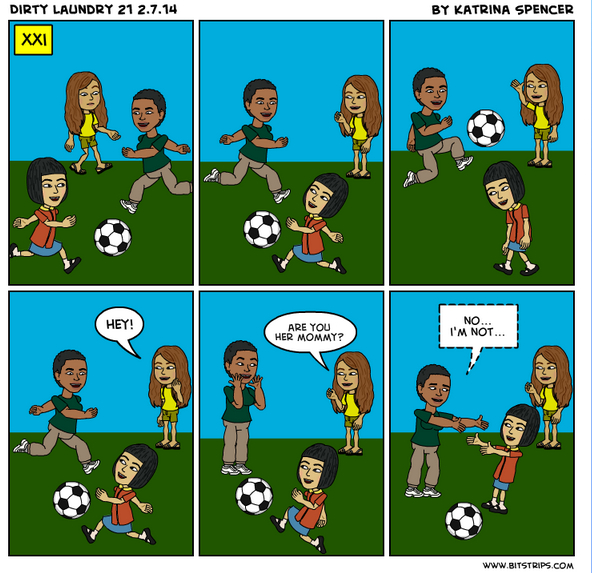
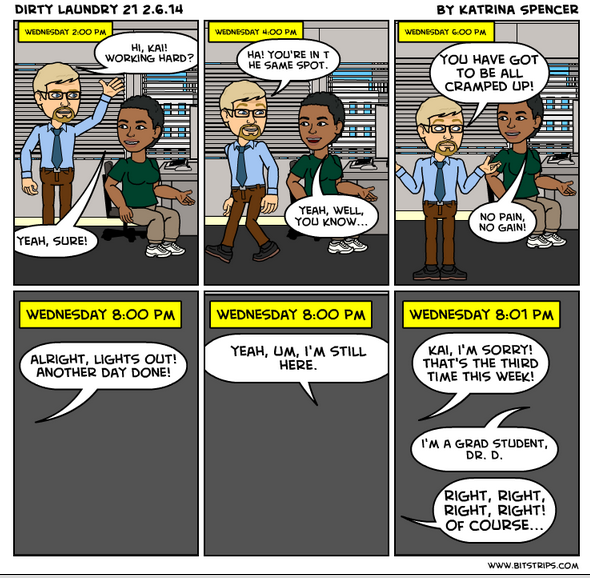
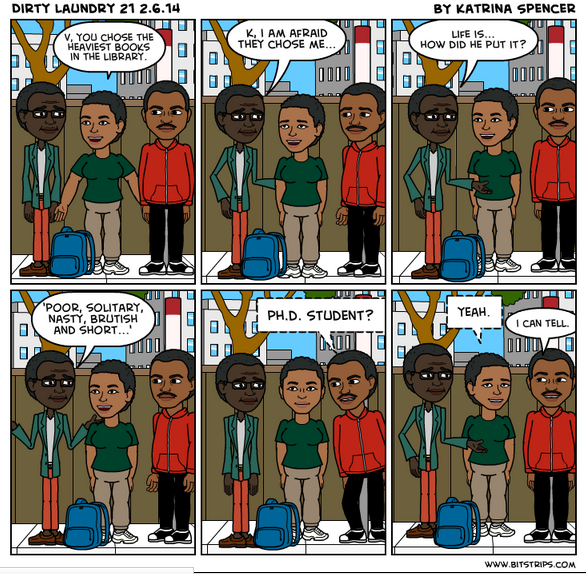
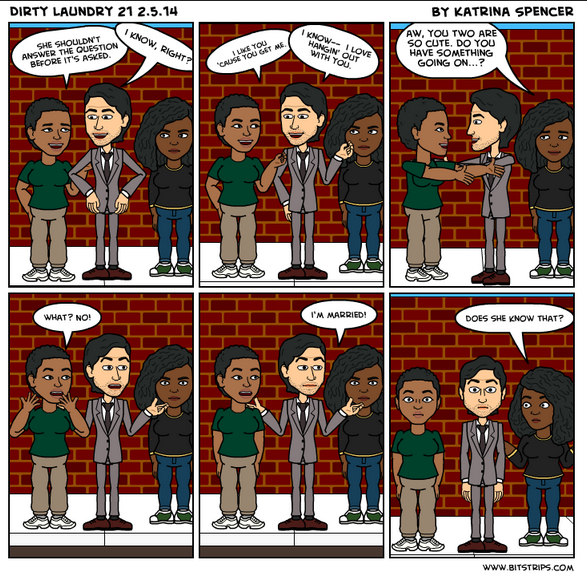
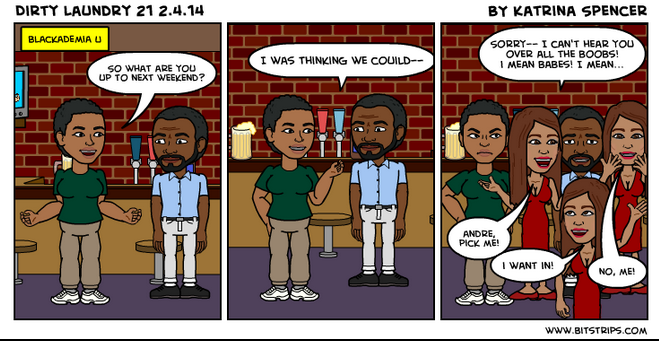
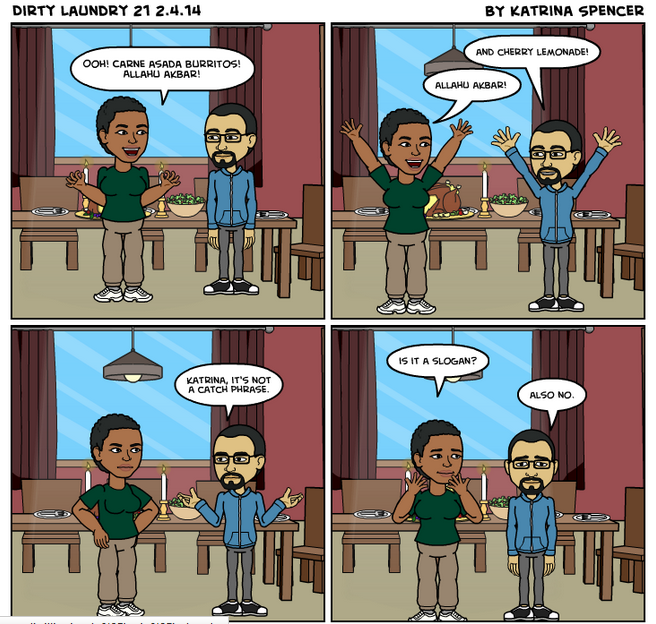
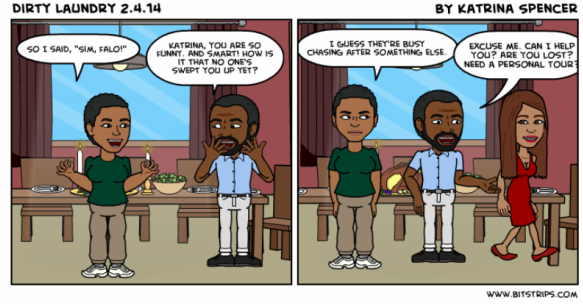
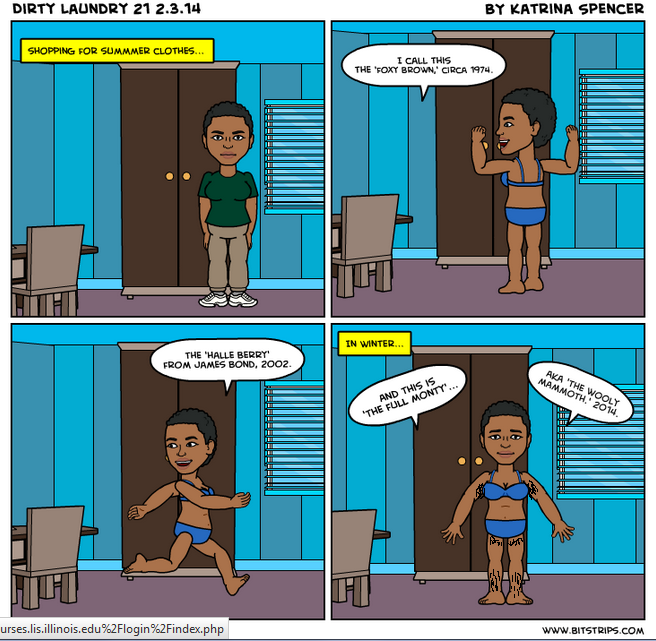
 RSS Feed
RSS Feed